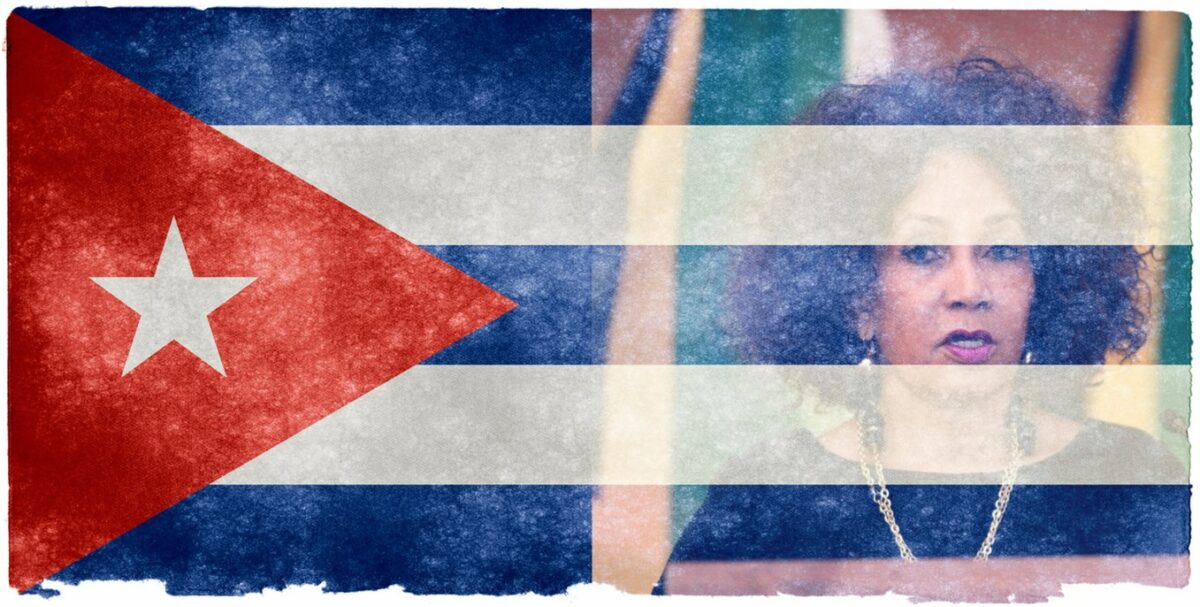Opposition parties have been pressing the South African government to reveal its’ employment agreements with Cuba following the Minister of Human Settlements, Water and Sanitation, Lindiwe Sisulu’s announcement to import a dozen Cuban engineers earlier this year.
The Democratic Alliance’s Mandlenkosi Mabika asked the Minister of Basic Education, Angie Motshekga, whether her department conducted any work exchange or employment agreements with the Republic of Cuba since the 2010-2011. Shadow Minister Mabika also enquired on the positions in which the Cubans were employed, the detail of their work, their specific skill sets, and the total costs to the department.
In her written parliamentary reply, Minister Motshekga revealed that the South African and Cuban governments agreed to collaborate on Professional Services in Basic Education in 2016 and that their agreement was valid from 2017 until 2022. She also revealed that 86 Cuban Education Specialists were employed since the agreement was signed in 2017 and that 32 were employed in the (Department of Basic Education) DBE national offices, while 54 were based in the Eastern Cape, Free State, Gauteng or Limpopo. Moreover, 19 are currently in the country and receive packages of R733 257 each, per annum. Thus, costing the department R13 931 883 during the current financial year. These individuals are tasked with assisting the department in identifying challenges experienced with teaching and exploring pedagogic approaches to overcome set challenges.
It is worth noting that an education degree meant a level of employability in the past, but this is no longer the case. The recent outpouring of education graduates far exceeds schools’ capacity to absorb them. Institutions of higher learning further contribute towards this challenge by enrolling more education students than needed in the market. The Department of Education’s databases are filled by teaching graduates seeking employment.
In April 2021, the country had 24,000 vacant teaching positions, some of which will be filled shortly. Amongst the graduates filling these positions, are those funded by the government’s Funza Luschaka bursary for education students.
Over the past decade the South African government has spend over R1.4 billion on its’ work exchange and employment agreements with Cuba.
Questions have been raised about government’s spending on skills and services from Cuba when there are unemployed and qualified workers in the country. In 2020, South Africa’s unemployment rate was 32.5%, while that of Cuba was 3.87%. This means that 7.2 million South Africans were unemployed then, a definitive cause for concern. Given this context, one can only rationalize that Pretoria’s employment of Cuban graduates has more to do with the legacy of Havana’s support for the ANC during the apartheid years than any genuine need for their skill sets in South Africa.
The huge unemployment rates in South Africa demand that South African teachers be hired as opposed to paying inflated salaries for foreign teachers whose contribution to our country’s education system is in doubt. South African institutions of higher learning have designed the curricula of future teachers to fit the needs of South Africa’s youth. They speak to South Africa’s past, present and future challenges with an emphasis on creating inclusive and just societies. Whilst this does not always get realized in the classroom on account of the influence of the South African Democratic Teachers Union (SADTU) over appointments in the Department of Basic Education, the reality is that Cuban teachers are trained in a different context and may prove unsuitable to the South African context. There is also the question of the language barrier.
What Pretoria needs to do is to work with South African Universities and the private sector to ensure that future teachers are trained for the demands of the future marketplace. This means preparing for a digital future where the Fourth Industrial Revolution is a reality. We owe it to future generations to not be trained in the precepts of some Communist nirvana which holds little relevance on African soil and will destroy the employment prospects of future generations of South Africans.

